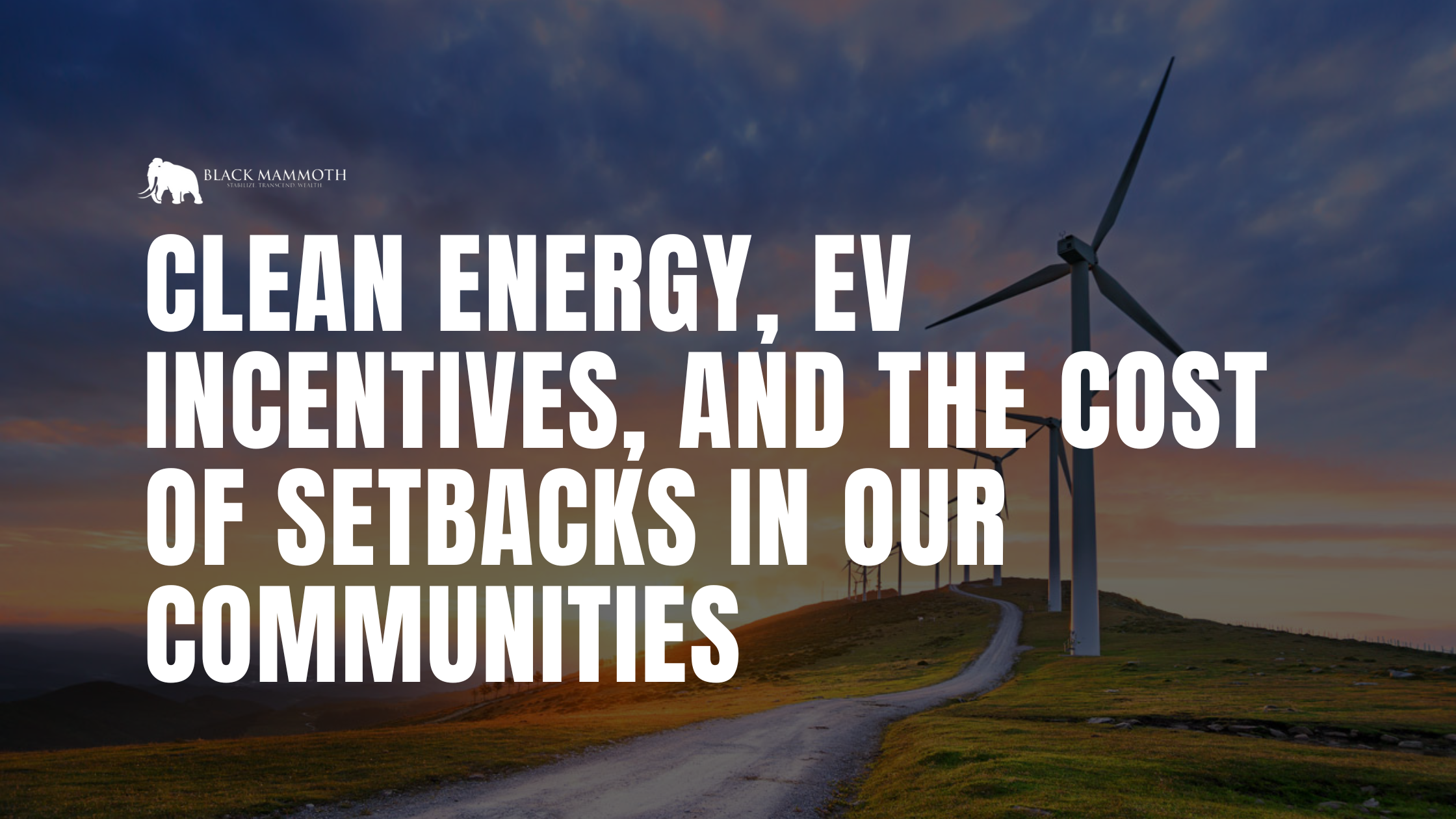Clean Energy, EV Incentives, and the Cost of Setbacks in Our Communities
For the past few years, we’ve watched something rare start to grow: opportunity. Not in theory, but in real neighborhoods. Black and Latino founders were stepping into green energy spaces—launching EV charging companies, installing solar in underserved areas, training up the next generation of climate workers. We were finally getting in the game.
Then this new tax bill came along and gutted the playbook.
The One Big Beautiful Bill Act just slashed major clean energy provisions from the Inflation Reduction Act. And for our communities, that’s not just a policy loss. That’s a financial punch to the gut.
WHAT JUST GOT CUT?
This bill eliminated or rolled back multiple incentives designed to accelerate the clean energy transition:
EV Purchase Rebates: Gone. No more up to $7,500 tax credit for new electric vehicle buyers.
Used EV Credit: Gone too. That $4,000 break helped low-to-moderate earners get in on clean tech.
Residential Solar Tax Credits: Reduced or phased out, depending on your income and location.
Commercial Clean Energy Grants: Canceled or frozen. These grants were fueling BIPOC-led startups and infrastructure in opportunity zones.
Bottom line? The tools that were helping new players—especially in historically excluded communities—enter the green economy are disappearing.
WHO THIS HURTS MOST
These cuts don’t just affect Tesla buyers and eco-activists. They slam the door on real economic mobility in neighborhoods that were finally seeing traction.
Black and Latino entrepreneurs who built their models around federal incentives now face capital gaps and demand drops.
Job training programs in solar install, EV maintenance, and energy efficiency retrofits will lose funding.
Low-income families who were finally seeing clean energy options become affordable will get priced out again.
Opportunity Zones, meant to revitalize underserved areas with infrastructure investment, now face stalled projects and shrinking capital.
This isn’t about luxury. This is about future-proofing jobs, businesses, and local economies. We were building. Now we’re blocked.
WHAT YOU CAN DO RIGHT NOW
You don’t control Congress, but you do control your strategy. Here’s how to pivot and protect your potential in this moment:
1. Audit Your Current Access
If you were planning to claim solar or EV credits, check with a CPA ASAP to see if your purchase qualifies under prior-year provisions.
2. Look for State and Local Incentives
Many states have stepped in with their own EV and clean energy programs. Check with your state energy office or local utility.
3. Tap Into Community Development Financial Institutions (CDFIs)
These lenders are still funding green small biz projects, especially in underserved areas. Find one and get your paperwork ready.
4. Explore Corporate and Private Funding
Companies like Google, Microsoft, and local energy co-ops are investing in clean energy talent pipelines and tech. Align your business pitch with their goals.
5. Get Loud and Get Visible
Public pressure still works. Join clean energy coalitions, attend town halls, and share your story. Policymakers need to know these cuts don’t just affect "the environment"—they kill dreams and jobs in our zip codes.
REAL TALK
Clean energy was never just about sustainability. For us, it was about equity. Ownership. Power.
And this rollback? It’s a reminder that access isn’t permanent. Policy changes can erase progress overnight if we don’t stay alert, stay organized, and keep building alternative paths.
We’ll keep fighting. But in the meantime, we pivot smart. We share info. We stay ready.
Because while this door just slammed shut, another one is waiting to be kicked open.
Let’s build.

